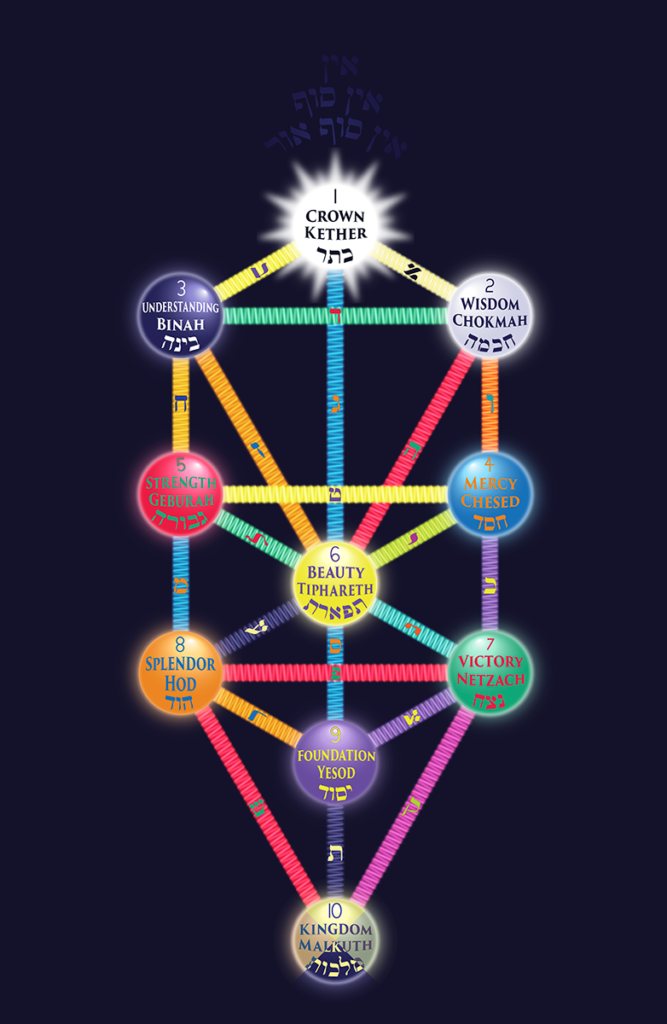The Mystical Path of Kabbalah: Understanding the Secrets of Jewish Esotericism
Kabbalah is a mystical and esoteric philosophy that seeks to understand the deeper meaning of the universe and the nature of God. Rooted in Jewish tradition, Kabbalah offers a unique perspective on the mysteries of existence, examining the divine mysteries of creation, the cosmos, and human experience. In this blog, we will delve into the origins, teachings, and practices of Kabbalah, exploring the intricate web of Jewish esotericism.
The term Kabbalah means "receiving" or "tradition," referring to a body of mystical teachings that has been passed down through generations. Its origins can be traced back to ancient times but its development into a distinct theology took place during the Middle Ages, where it flourished in Spain and other parts of Europe. It was shaped by a host of traditions, including Platonic philosophy, Neoplatonism, Gnosticism, and Jewish mysticism.
One of the central tenets of Kabbalah is the belief in an infinite and indescribable God, known as the Ein Sof. The Ein Sof is considered to be the source of creation, and all that exists is a reflection of its divine essence. Kabbalah also explores the nature of the soul, the workings of the cosmos, and the relationships between God, humanity, and the world.
The Sephirot, also known as the Tree of Life, is a foundational aspect of Kabbalah's teachings. It is a diagram of 10 interconnected spheres representing different aspects of God's divine attributes. The Sephirot is often used as a tool for meditation and contemplation, allowing individuals to connect with the various qualities of God and the universe.
Kabbalah is not just theoretical but also has practical applications. One of the chief practices in Kabbalah is meditation, which helps to cultivate a deeper awareness and understanding of the divine. It also involves the creation of amulets, talismans, and other mystical artifacts that are believed to have spiritual power.
Several influential figures have helped shape the development of Kabbalah throughout history. Rabbi Moses de Leon, for instance, is credited with authoring the Zohar, a central text of Kabbalah. Other notable figures include Isaac Luria, a 16th-century Kabbalist who developed the system of Lurianic Kabbalah, and the Baal Shem Tov, a famous 18th-century mystic and founder of Hasidic Judaism.
While Kabbalah is rooted in Jewish tradition, it is not synonymous with Judaism. Some Jewish communities reject Kabbalah's teachings as separate from mainstream Judaism, while others embrace it as an integral part of the tradition. Over the years, Kabbalah has also gained a following among non-Jews, including Christians, New Agers, and even celebrities.
In recent years, Kabbalah has experienced a resurgence of popularity, with classes, workshops, and books on the subject becoming more widely available. The movement has been particularly popular among celebrities, such as Madonna and Ashton Kutcher, who have embraced Kabbalah teachings as a means for personal and spiritual growth.
Kabbalah offers a unique pathway to understanding the mysteries of existence, bridging the gap between the transcendent and the mundane. Its teachings offer a profound understanding of God, the universe, and the human experience, providing a means for individuals to explore and connect with the divine within. And although it has been shrouded in mystique and secrecy throughout much of history, Kabbalah remains a powerful force for spiritual transformation and personal growth.
Kabbalah is a complex and multifaceted subject that requires in-depth study and understanding. While this blog provides an overview of its general concepts and teachings, it is not intended to be a comprehensive guide. It is essential to approach the study of Kabbalah with an open mind and a willingness to explore its mystical and esoteric teachings.













No comments:
Post a Comment